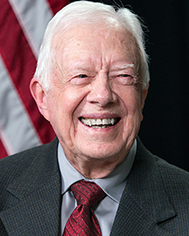The war on drugs causes violence, poverty, and illiteracy in Latin
America that drives illegal immigration into the U.S., for the profit
of Monsanto, military contractors, and private prison companies.
Does that seem right to you?
Neal Peirce wrote a syndicated column 22 May 2011,
Misguided U.S. drug policies afflict Mexico, Central America:
 The war on drugs in Mexico, partially funded by hundreds of millions of
dollars in U.S. government assistance, has not only failed to curb the
trade but intensified horrific violence, corruption and human rights
abuses, writes Neal Peirce.
The war on drugs in Mexico, partially funded by hundreds of millions of
dollars in U.S. government assistance, has not only failed to curb the
trade but intensified horrific violence, corruption and human rights
abuses, writes Neal Peirce.
For most Americans, the recent news of popular demonstrations in
Mexico was probably a small diversion from the daily tide of bloody
global reports from such faraway hot spots as Pakistan, Syria, Libya,
Afghanistan and Bahrain.
 Why worry, most of us likely concluded, if thousands of Mexicans are
marching in the streets, protesting the horrific violence and high death
toll in their nation’s raging drug war? Isn’t that their problem?
Why worry, most of us likely concluded, if thousands of Mexicans are
marching in the streets, protesting the horrific violence and high death
toll in their nation’s raging drug war? Isn’t that their problem?
It’s true, the news reports focus less on the American role, more on
growing anger with the government of President Felipe Calderón and the
meager returns from the massive police and military crackdown on the
drug trade he inaugurated in 2006.
Since then, more than 37,000 Mexicans have been murdered, often tortured
and brutalized before their deaths, as cartels battle for control of drug
smuggling routes and brazenly assassinate anyone, official or average
citizen, they think is in their way.
The hard lesson is that the war on drug dealers, decreed by Calderón and
partially funded by hundreds of millions of dollars in U.S. government
assistance, has not only failed to curb the trade but intensified horrific
violence, corruption and human-rights abuses.
So what can be done?
Continue reading → With the law passed and ready for implementation, many rural farmers—especially in Central and South Georgia—are taking notice to the exodus of migrant workers and immigrants which has left some farmers without workers to pick crops.
Valdosta’s Ellis Black who represents parts of Lowndes County as a state representative helped to pass Gov. Nathan Deal’s conservative and punitive agenda and consequently it has contributed to drive an increasing number of migrant workers out of the Peach State.









